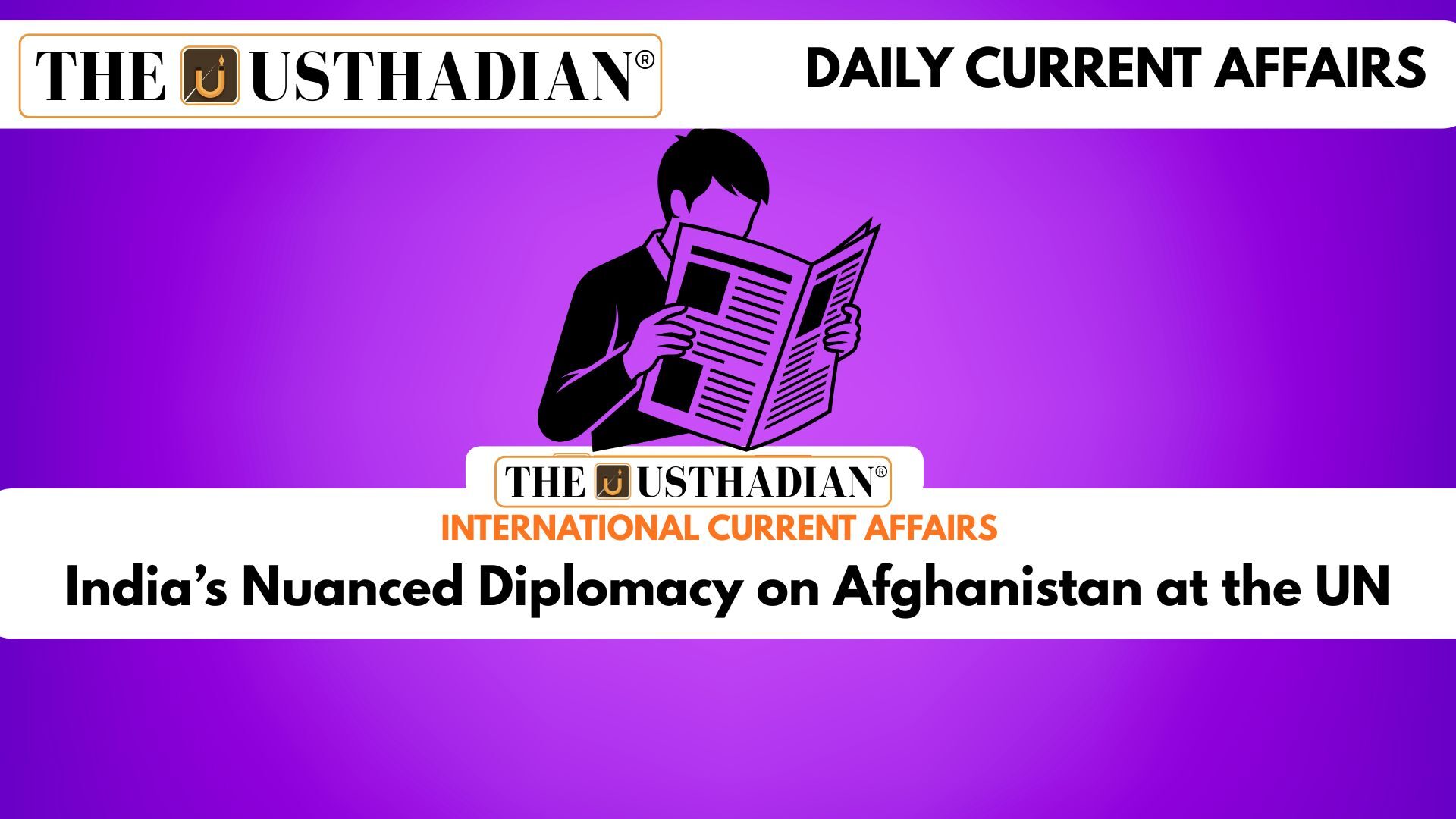India avoids polarised choices
India’s Nuanced Diplomacy on Afghanistan at the UN: India abstained from voting on the recent UN General Assembly draft resolution on Afghanistan. The resolution, introduced by Germany, was aimed at addressing the state of post-Taliban Afghanistan. India’s decision to abstain reflects its balanced and strategic posture, avoiding both endorsement and outright rejection.
Terrorism remains India’s top concern
India reiterated the threat of terrorism emanating from Afghan soil. Its statement urged the international community to ensure groups like Al Qaeda, ISIL, Lashkar-e-Taiba, and Jaish-e-Mohammed do not exploit the region. The Indian envoy stressed that counter-terrorism mechanisms must be central to any international framework.
Static GK fact: The Taliban regained power in Afghanistan in August 2021, leading to large-scale humanitarian and security concerns globally.
Advocating a realistic approach
Ambassador Parvathaneni Harish articulated India’s stance: a business-as-usual approach will not work, nor will one based entirely on sanctions. India favours a model of balanced engagement, combining incentives and disincentives to guide the Taliban toward compliance and reform.
Supporting regional solutions
India highlighted the importance of regional collaboration in stabilising Afghanistan. Countries such as Iran, Turkiye, and India have contributed to educational support for Afghan students. Central Asian nations are also facilitating access to higher education, aiming to empower Afghan youth.
Static GK Tip: India shares no direct border with Afghanistan, but its strategic interests are deeply tied to regional peace via Chabahar Port in Iran and connectivity corridors.
Connectivity and economic hope
The UN resolution recognises Afghanistan’s strategic location as a potential land bridge linking Central and South Asia. India agrees that economic cooperation and regional connectivity are key to long-term peace. The Taliban has been urged to engage constructively with regional players.
India’s humanitarian track record
India has consistently prioritised humanitarian aid. Since 2021, it has delivered over 50,000 metric tonnes of wheat, medicines, vaccines, and emergency supplies to Afghanistan. India also supports drug rehabilitation, especially for Afghan women, in collaboration with the UN Office on Drugs and Crime.
Educational empowerment as diplomacy
India continues to offer scholarships to Afghan students under various government schemes. Since 2023, nearly 2,000 Afghan students, including 600 women, have benefited from these initiatives, reinforcing India’s role in building Afghanistan’s human capital.
Long-standing development presence
India’s involvement includes over 500 development projects across all 34 Afghan provinces. These projects span healthcare, food security, education, and even sports infrastructure. This legacy affirms India’s soft power approach and enduring commitment to Afghan stability.
Static Usthadian Current Affairs Table
India’s Nuanced Diplomacy on Afghanistan at the UN:
| Topic | Detail |
| UN Resolution Date | July 11, 2025 |
| India’s UN Representative | Parvathaneni Harish |
| Taliban Regained Power | August 2021 |
| Humanitarian Aid Supplied by India | 50,000+ metric tonnes of wheat, medicines, vaccines |
| Number of Development Projects by India | Over 500 |
| Afghan Student Scholarships Since 2023 | Around 2,000 (600 women) |
| India’s Position on UN Vote | Abstained |
| Terrorist Groups of Concern | Al Qaeda, ISIL, LeT, JeM |
| Supporting Educational Nations | India, Iran, Turkiye, Central Asian countries |
| Connectivity Strategy | Linking Central and South Asia via Afghanistan |








